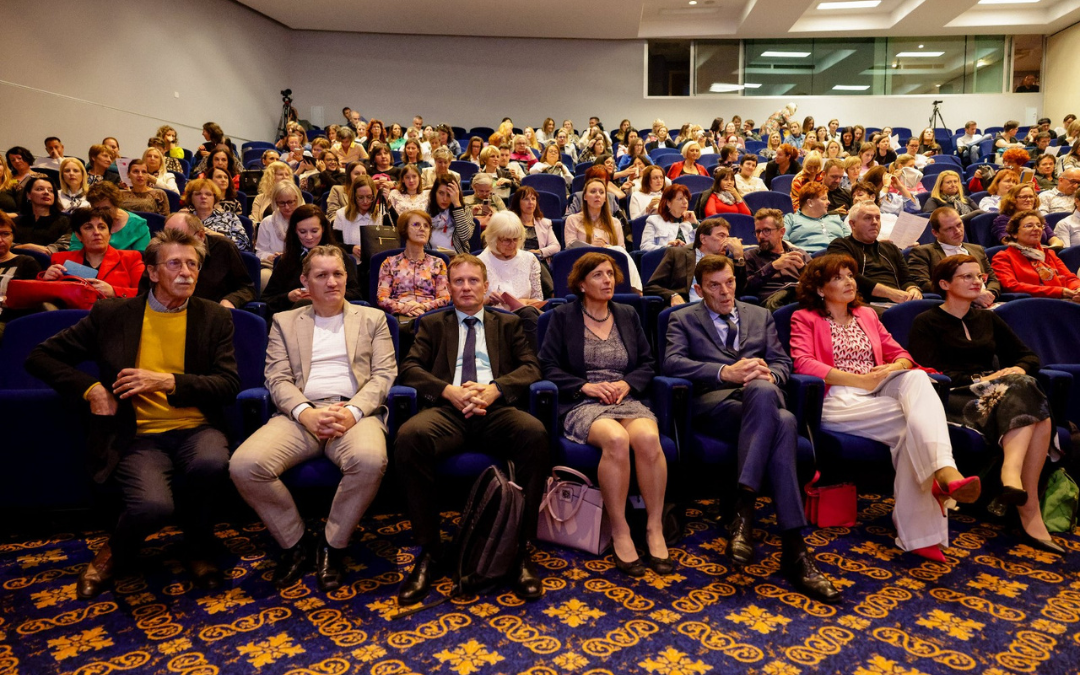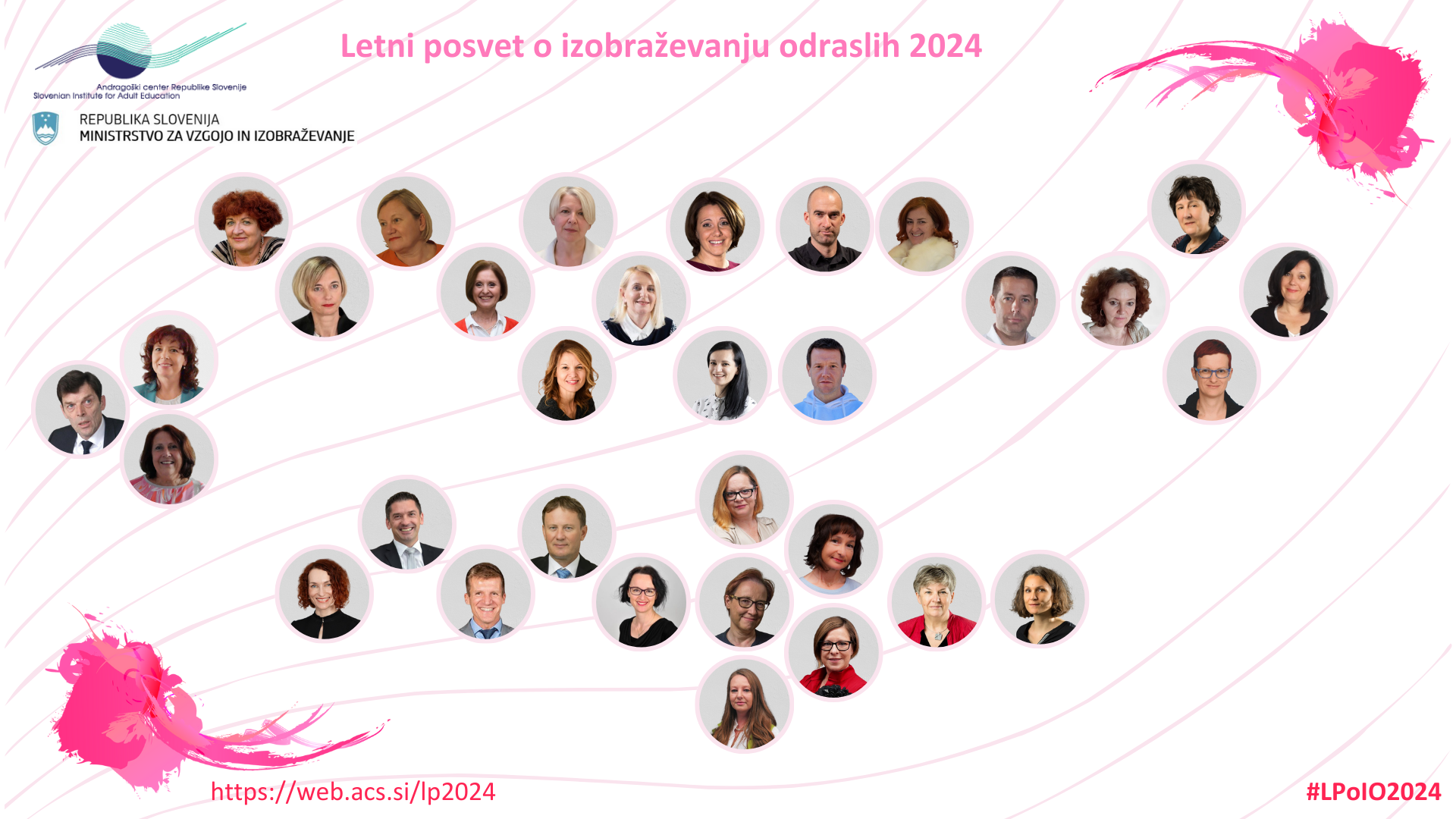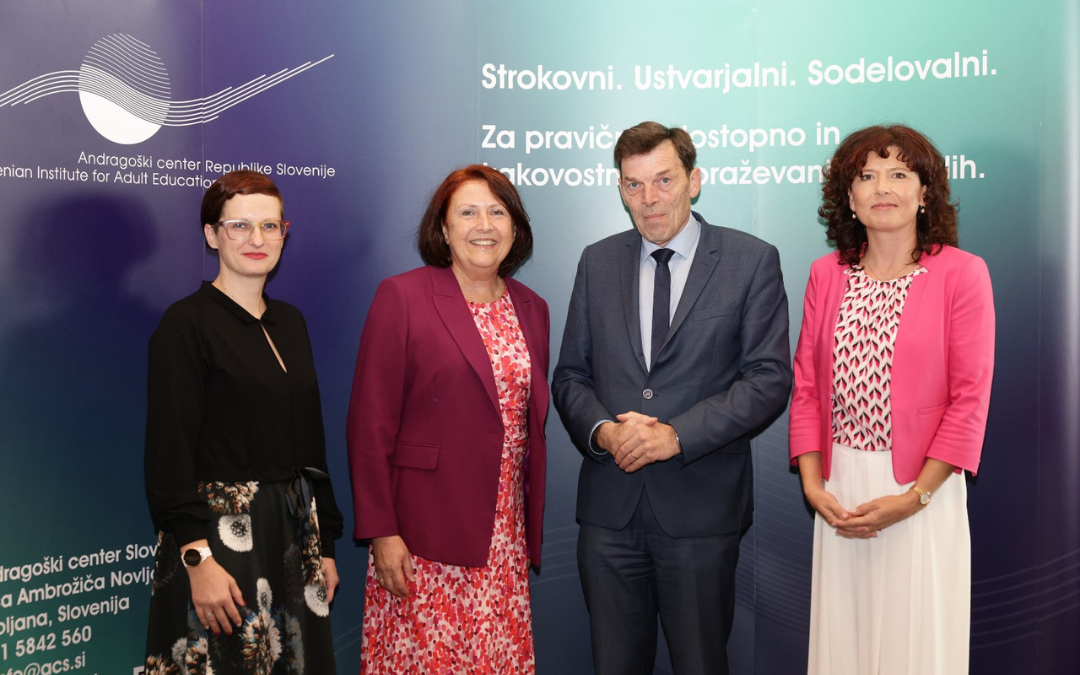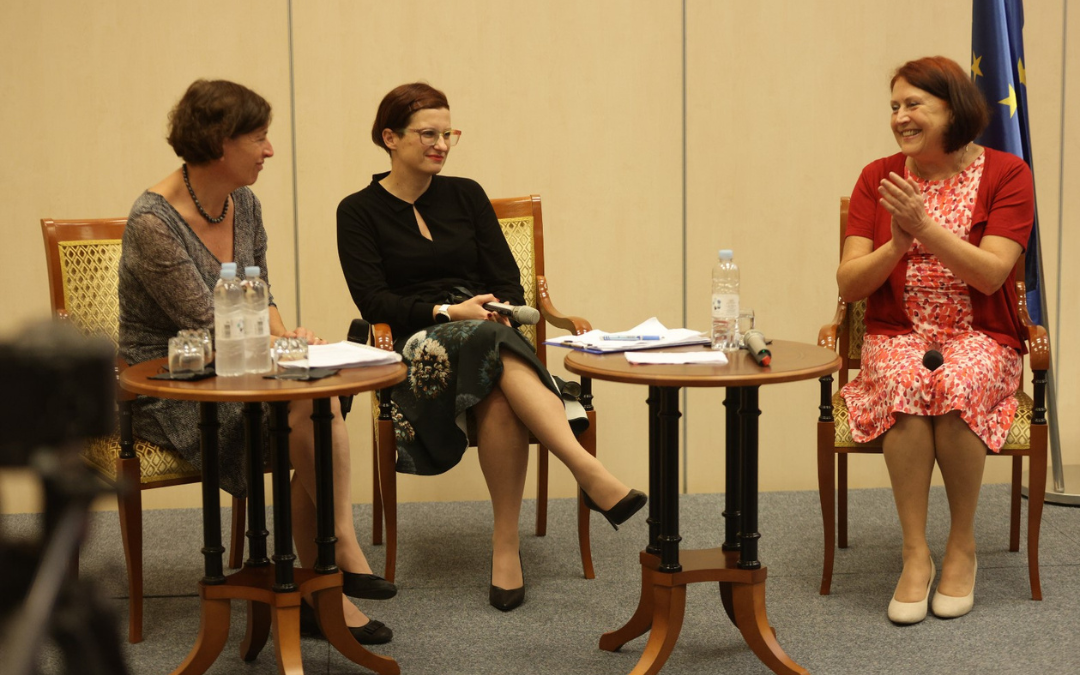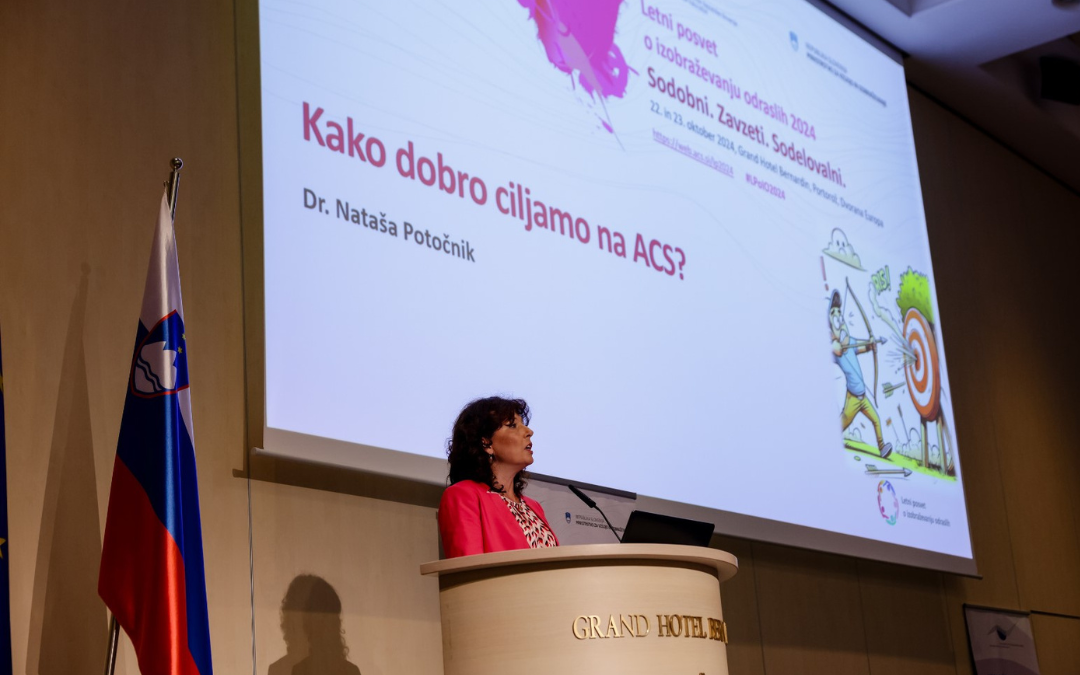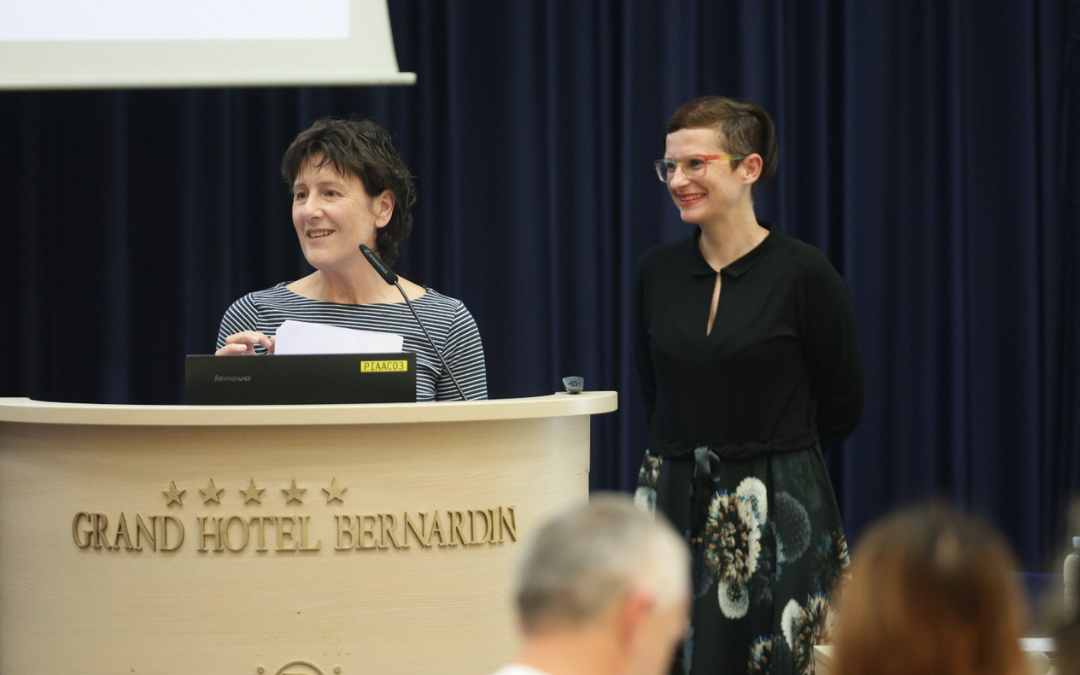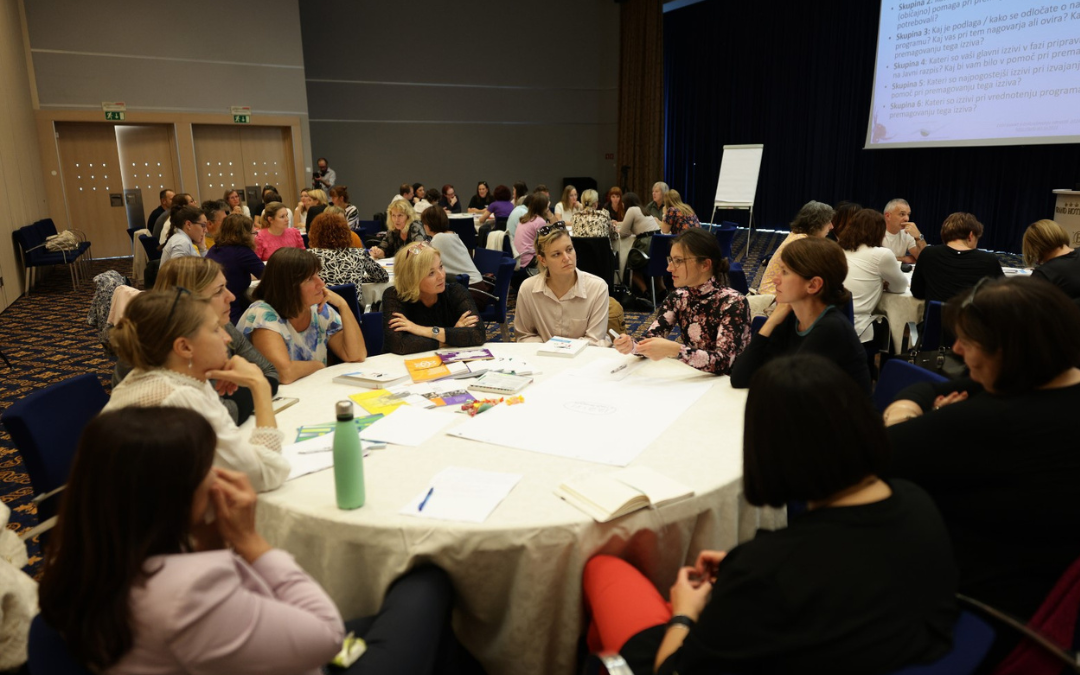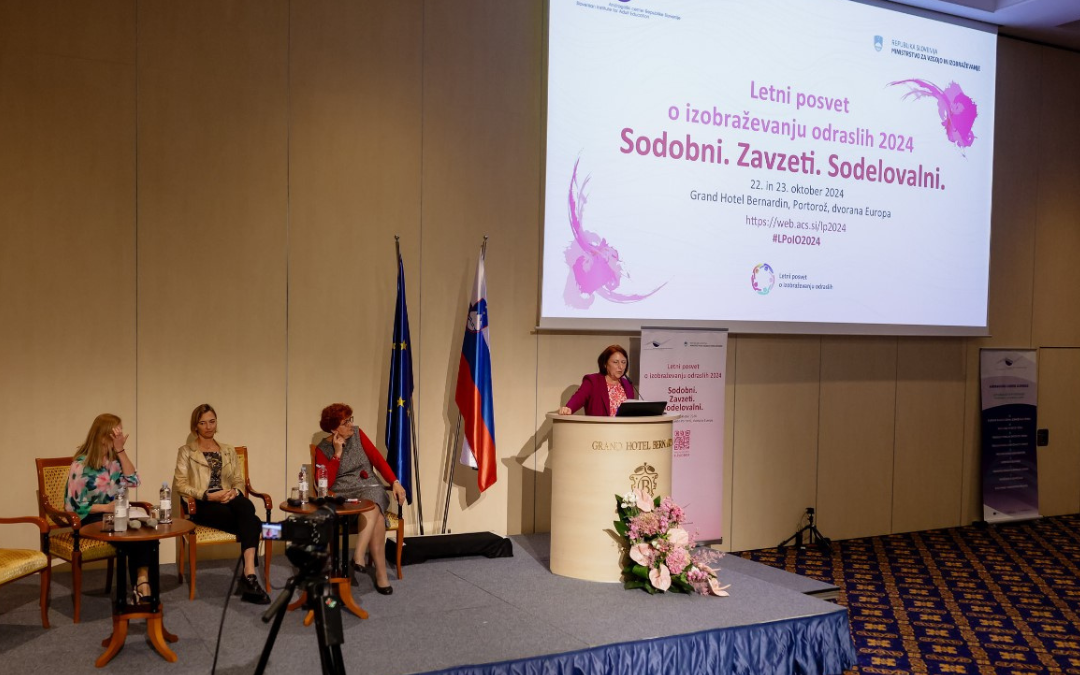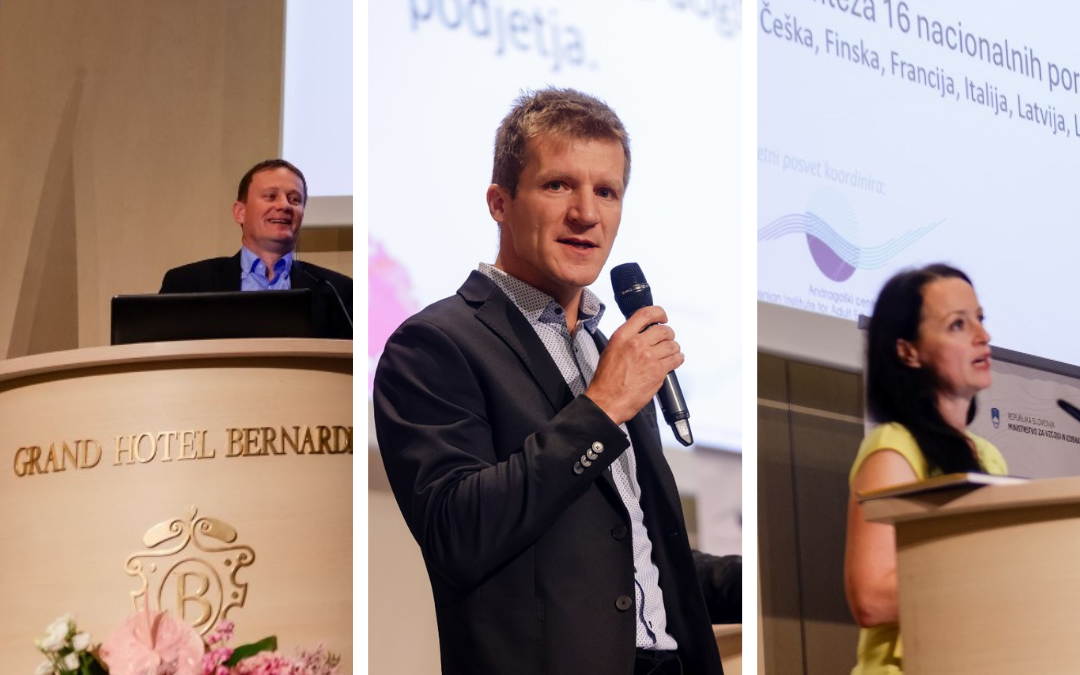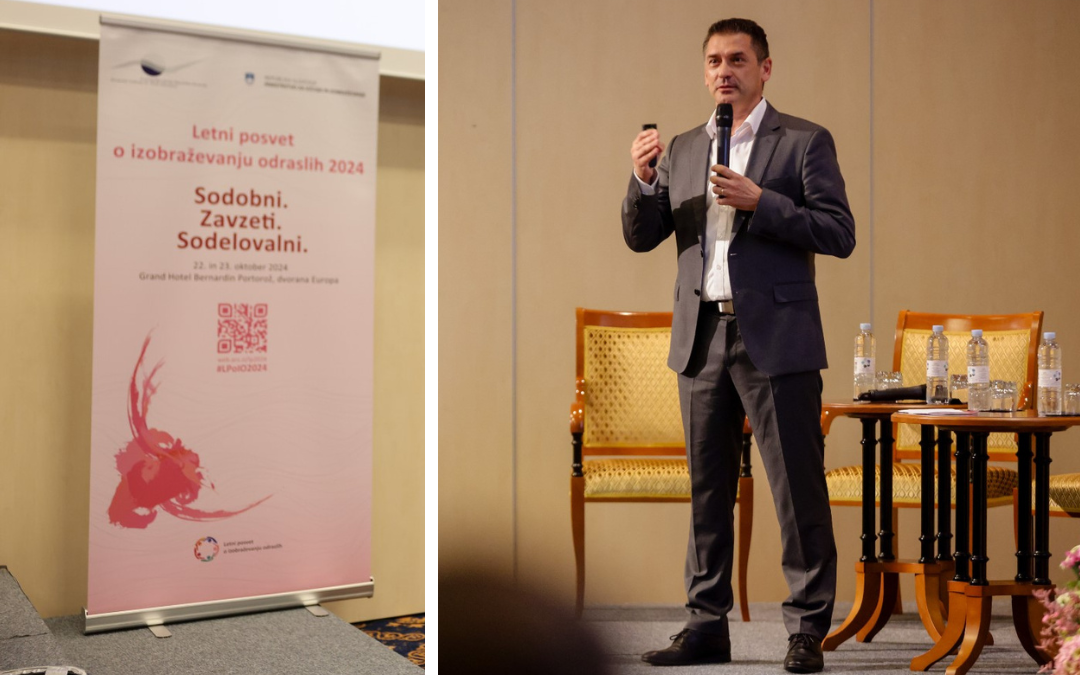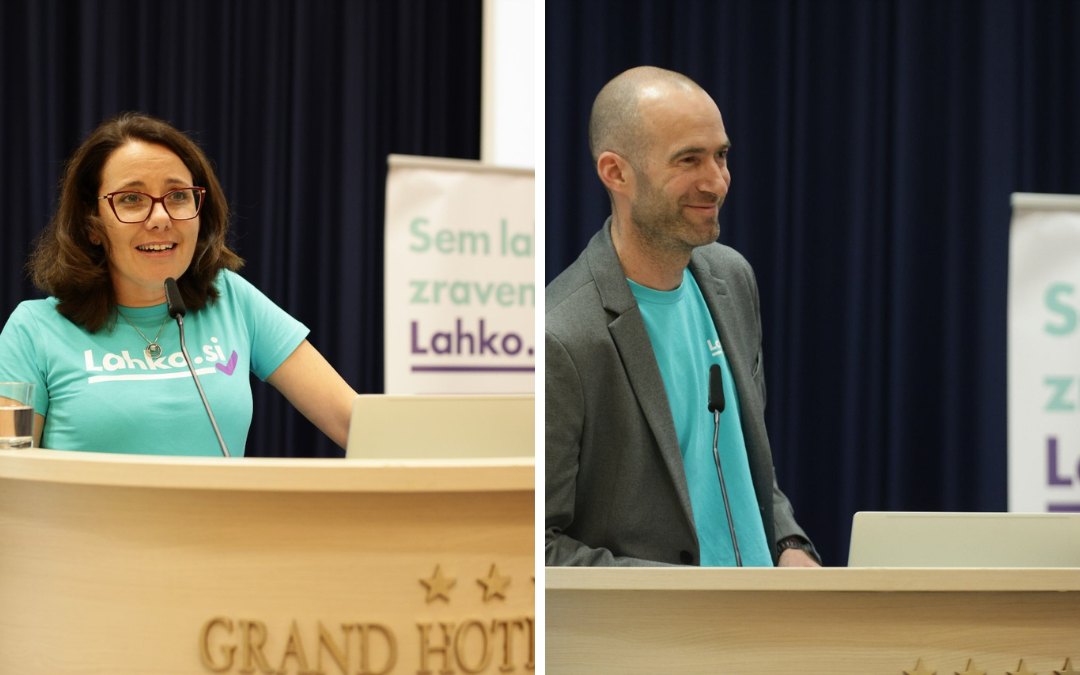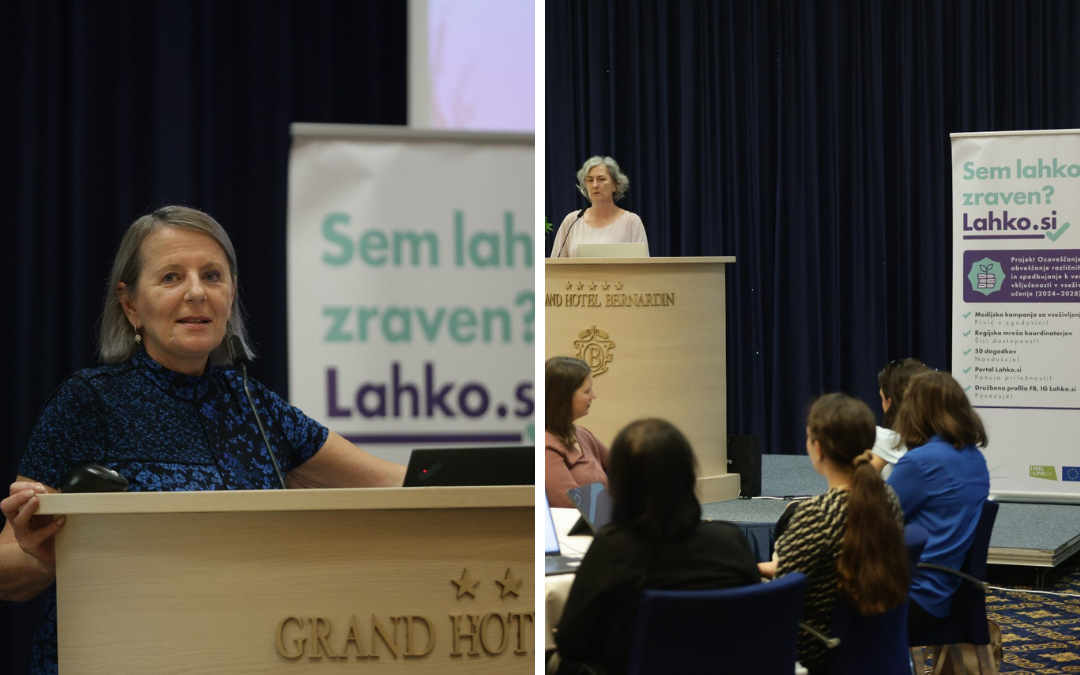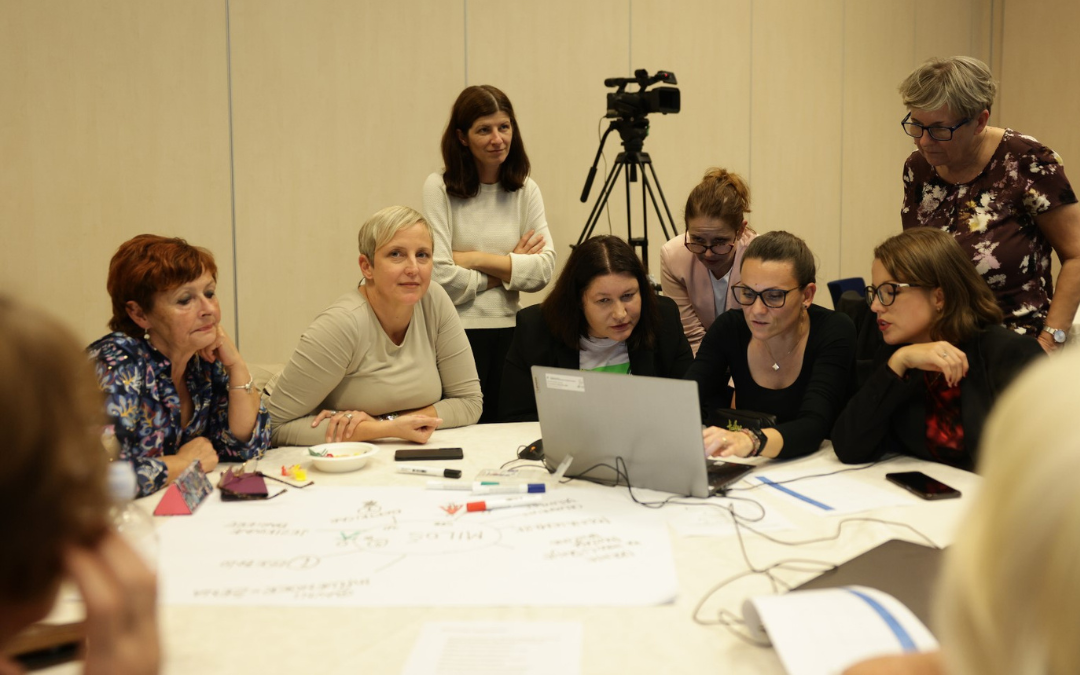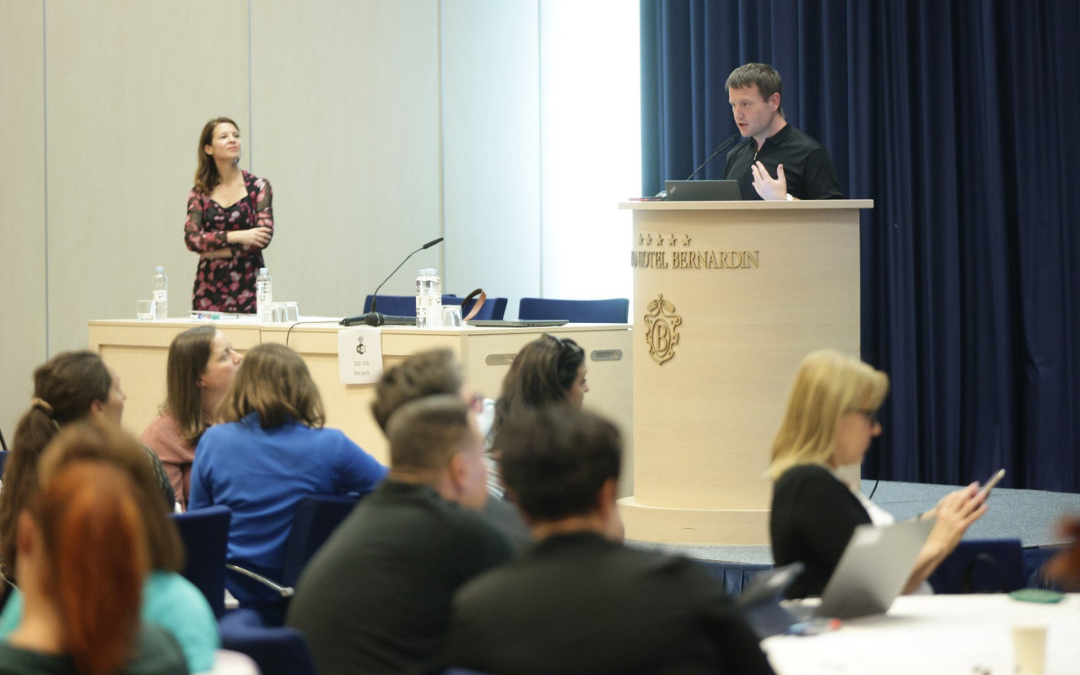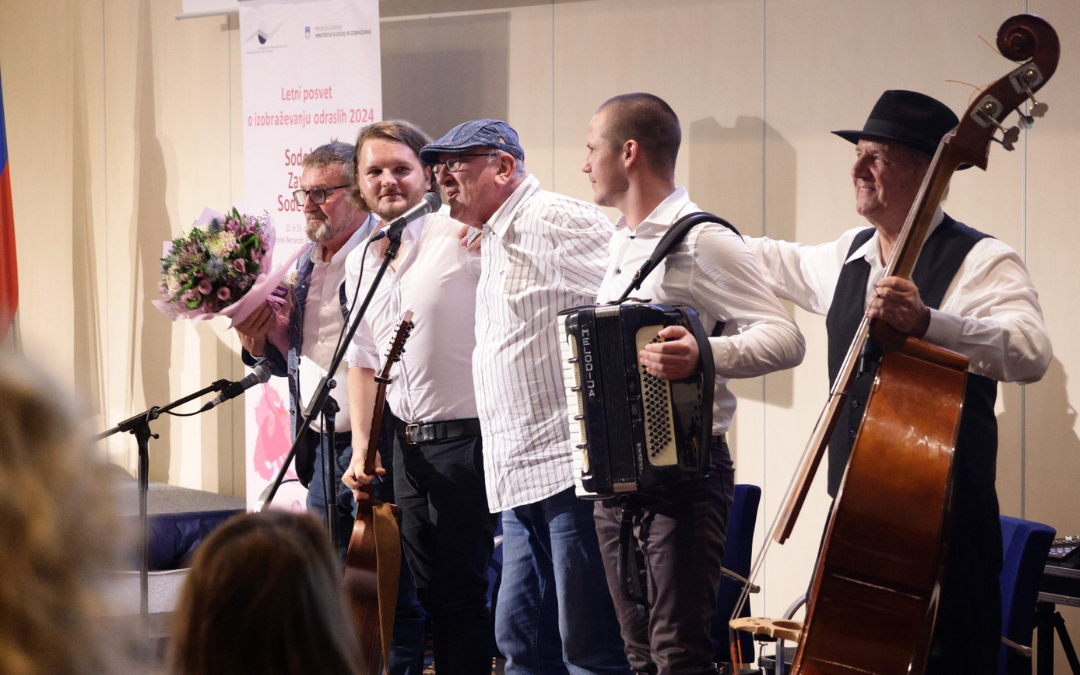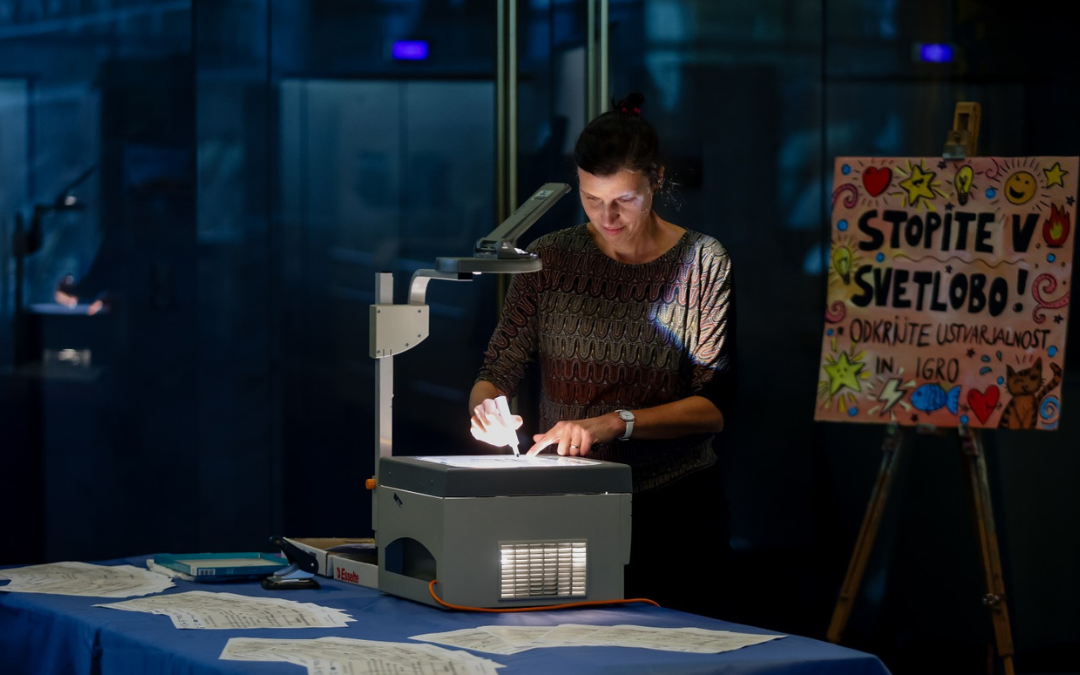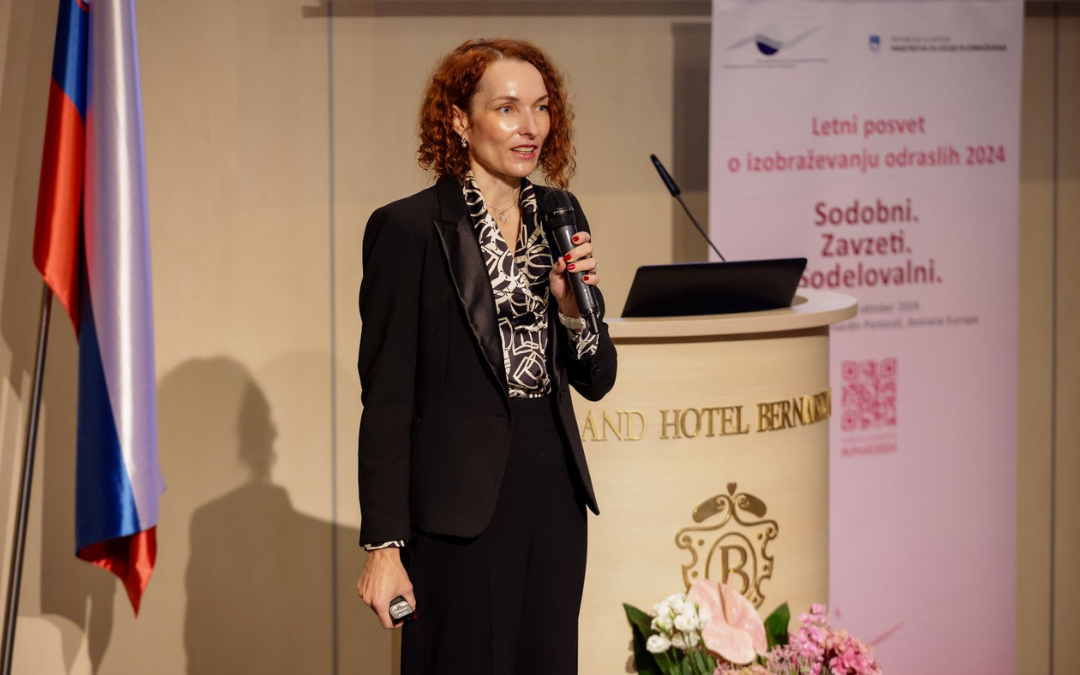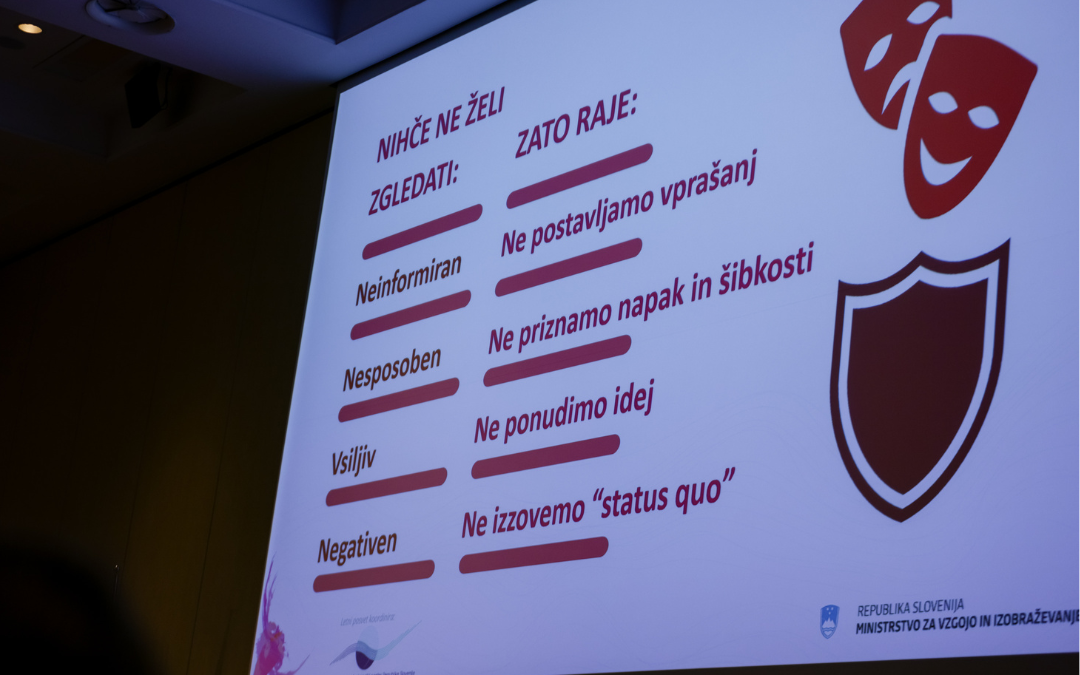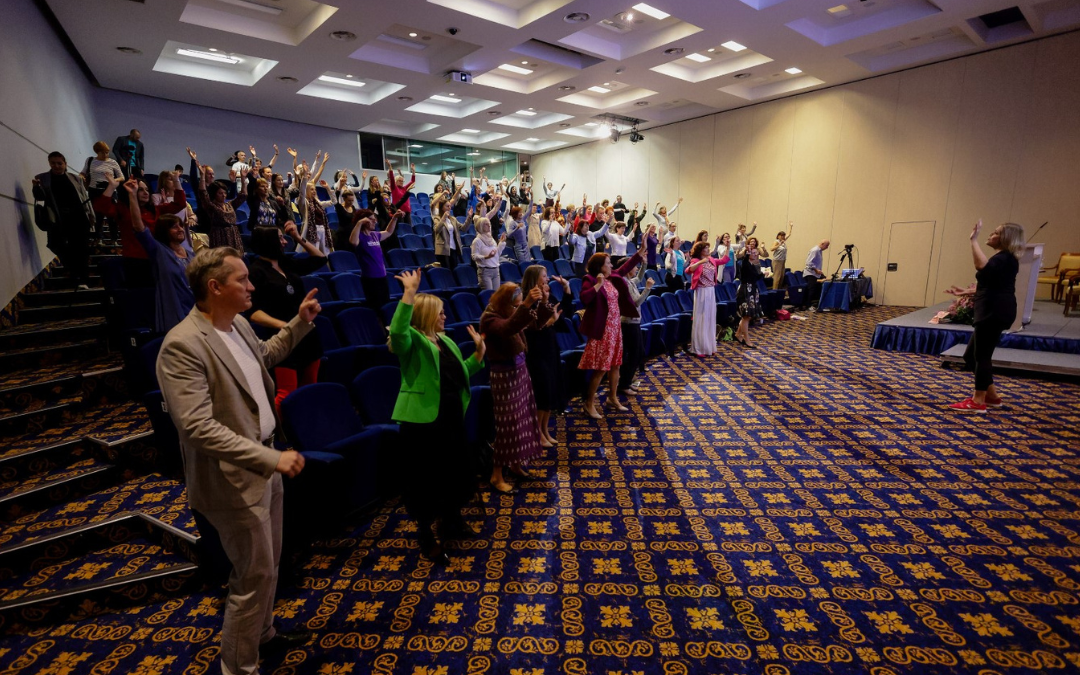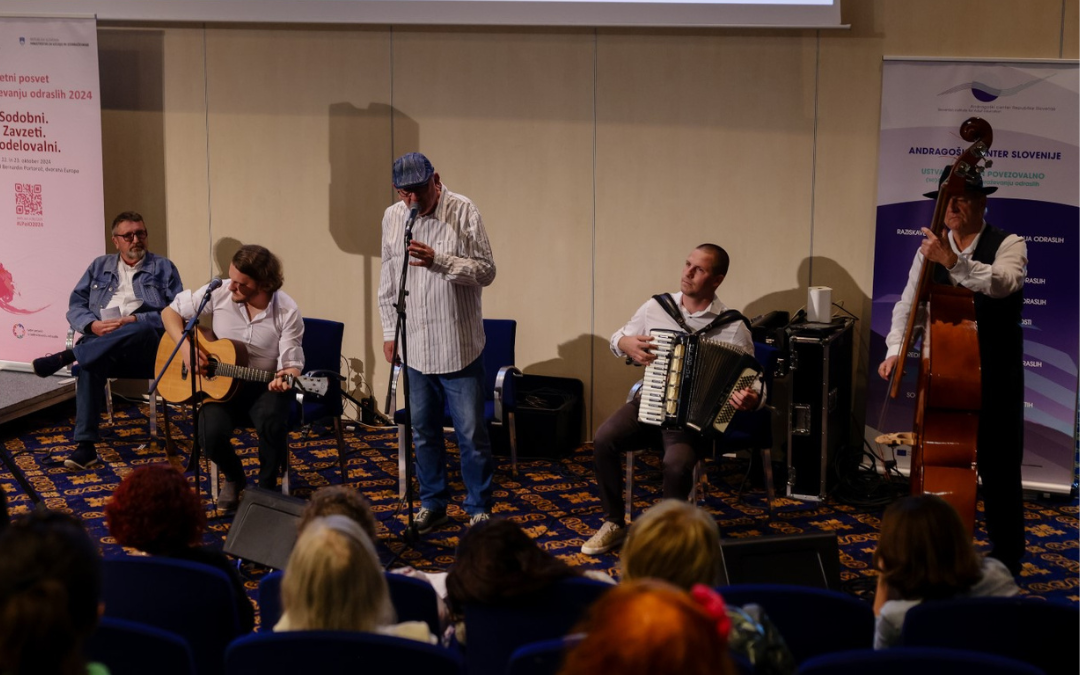The AAEC 2024 brought us together for networking and professional exchanges on the 22 and 23 October. Around 260 participants gathered at the well-established venue for our professional meetings, the Grand Hotel Bernardin in Portorož. As expected, the gender balance leaned heavily towards women, with men making up only about 16% of attendees.
The event was held in a hybrid format, allowing some participants to follow the proceedings online. Recordings, along with presentations and photos, have been made available on the event’s website.
Now, onto the likely reasons for the enthusiasm
Both during the conference and in subsequent personal and online communications, as well as in the evaluation survey, participants expressed a great deal of satisfaction. Some even used phrases like a different kind of conference, even more inspiring, etc. What might have contributed to this?
Both days were united by the slogan Modern. Committed. Collaborative., which served as a unifying thread. It is, therefore, no surprise that these three principles ranked high among the ten success factors of AAEC 2024. Unsurprisingly, these principles are closely interconnected.
1. Commitment
The enthusiastic feedback from participants is, of course, a source of great joy for us organisers. Yet before that, we grapple with high expectations – our own and those of others. However, once the programme and organisational committees enthusiastically get to work, everything seems to fall into place naturally. For 15 consecutive years, we have managed to raise the bar, even when it seemed impossible the year before. This is undoubtedly due to our guiding principle: people for people. We approach the task with the best intentions to connect, encourage our peers and guests to participate, and highlight and celebrate their contributions. I dare say our commitment is like a snowball, gathering momentum even before the event and irresistibly drawing in everyone involved.
2. Collaboration
The conference is truly a collective effort, following a top-down and bottom-up approach. This year, we were honoured by the opening address of the newly appointed Minister, Dr Vinko Logaj.
Lifelong learning brings numerous benefits not only to individuals but to society as a whole.
Ministry representatives also actively participated in working groups. Speakers from national institutions such as the Institute for Vocational Education and Training and CMEPIUS further enriched the programme. The perspective of the SIAE was presented by its director, Dr Nataša Potočnik.
3. Professionalism
The goal of all contributions was to highlight the ALE profession, portray its current state and draw attention to the challenges it faces in the future.
For the first time in the history of our gatherings, we achieved a reasonably comprehensive and balanced overview. Representatives from six associations, along with a virtual participant, Ines, provided their perspectives. Common challenges were identified, along with similar and divergent approaches, calls for collaboration and opportunities for complementarity. The discussions revealed a bold engagement with current trends while firmly upholding professional principles. These principles were examined in a working group focused on quality planning of non-formal education programmes.
4. Balance
The programme designers paid particular attention to balancing general education with adult vocational education and training.
Participants listened with interest to the principles of modernising the latter.
An inspiring example came from the collaboration between the Higher Vocational College L.I.V.E. (Prometna šola Maribor) and industry. Such a strong connection is now seen as indispensable for successful professional education. The precarious balance of our shared situation was vividly illustrated through the metaphor of the boiled frog by Dr Matej Forjan, Director of the School Centre Novo Mesto. His presentation was both humorous and thought-provoking.
In education, we should place greater emphasis on process knowledge, which supports the development of transversal competencies, personal qualities, creativity and innovation, rather than focusing solely on purely content-based knowledge.
5. Modernity
Our alignment with modern trends is self-evident. Digital and sustainability challenges have accompanied us for several years now, and we always address them during the conference.
This time, we tackled digital challenges in a very practical way. With the help of external experts, we (willingly or unwillingly) delved into the complex world of personal data protection in a working group. Modernity was the common thread running through all professional contributions, and their holistic approach was a particular strength.
The strength of Adult Education Centres lies in their staff, their activities and their collaboration.
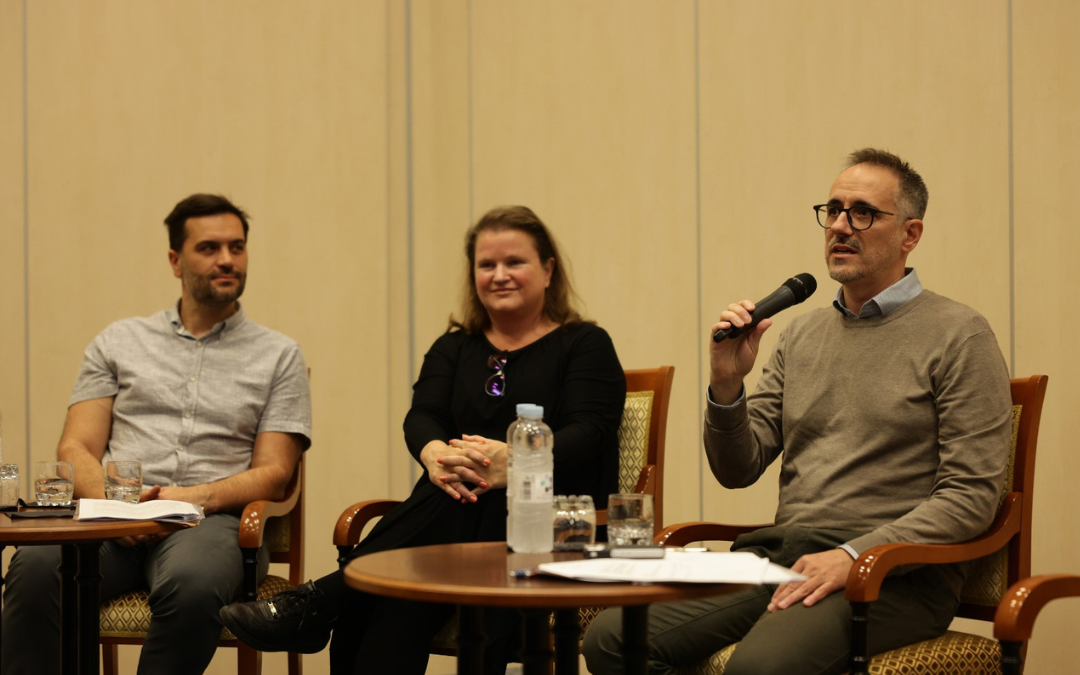
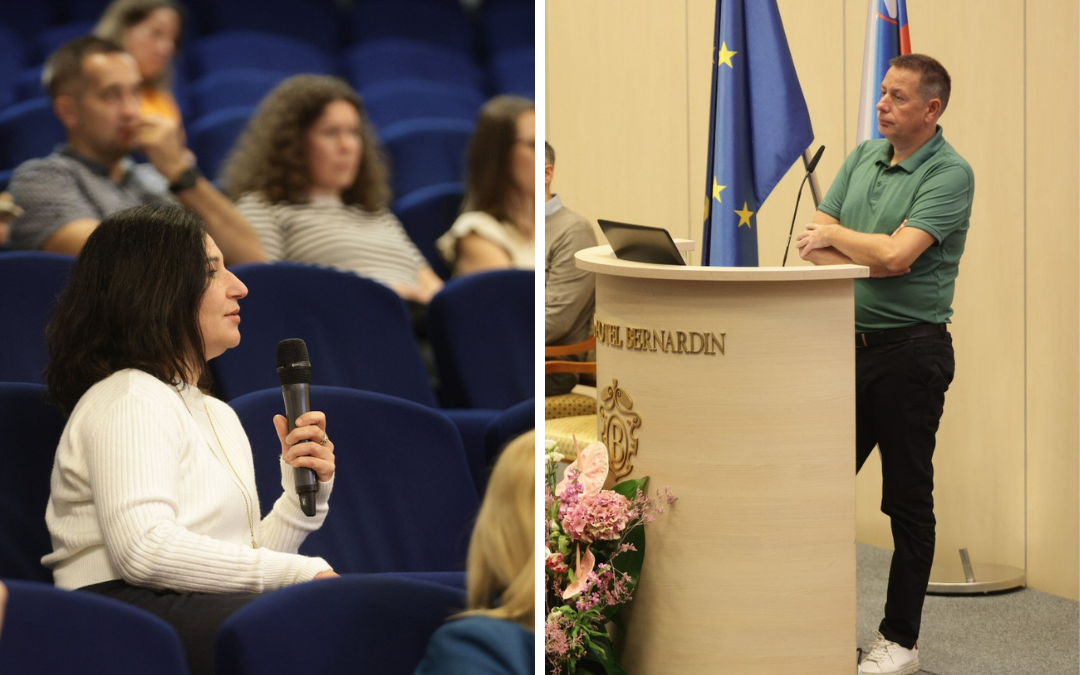
6. Dynamism
This autumn, a fresh wind swept through the ALE community with the media campaign Lahko.si. Its foundations, outlined in the Awareness-raising for Lifelong Learning project, were also presented during a working group session at the conference. Participants were already familiar with the campaign, and they welcomed the opportunities it brings for the field and the broader public.
In the same working group, we demonstrated an approach to promoting greater participation in LL using modern digital tools. The room buzzed with the sounds produced by these tools and the dynamic, engaged voices of participants.
7. Respect
The stories of inspiring practitioners deeply touched us. These individuals consistently prioritise their participants while maintaining a focus on professionalism and quality. They honour the unique characteristics of their often vulnerable target groups and grow professionally through a dialogical relationship with them. Their testimonies were profound and compelling, eliciting deep respect and admiration.
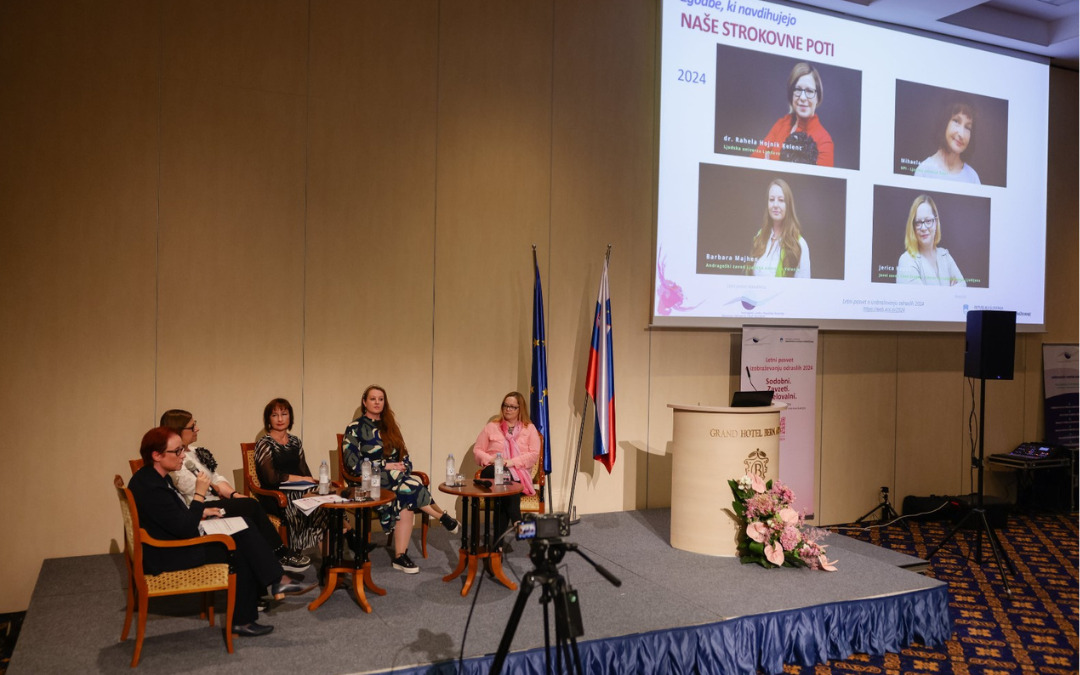
Adult educators fulfil goals and respond to the needs of the environment.
8. Festivity
A celebratory atmosphere was palpable on both days of the conference – perhaps it quietly claimed the role of this year’s leitmotif. We honoured Natalija Žalec, recipient of the highest national award in education in Slovenia. Her exceptional contributions to ALE, particularly her work with young people in the PLYA programme, were rightfully recognised. The second reason for the celebration was the 20th anniversary of the Days of Guidance for Learning and outreach activities. Lastly, there was a special commemoration of Lujz Alojz Sraka’s retirement – a moment to be further elaborated in the following success factor.
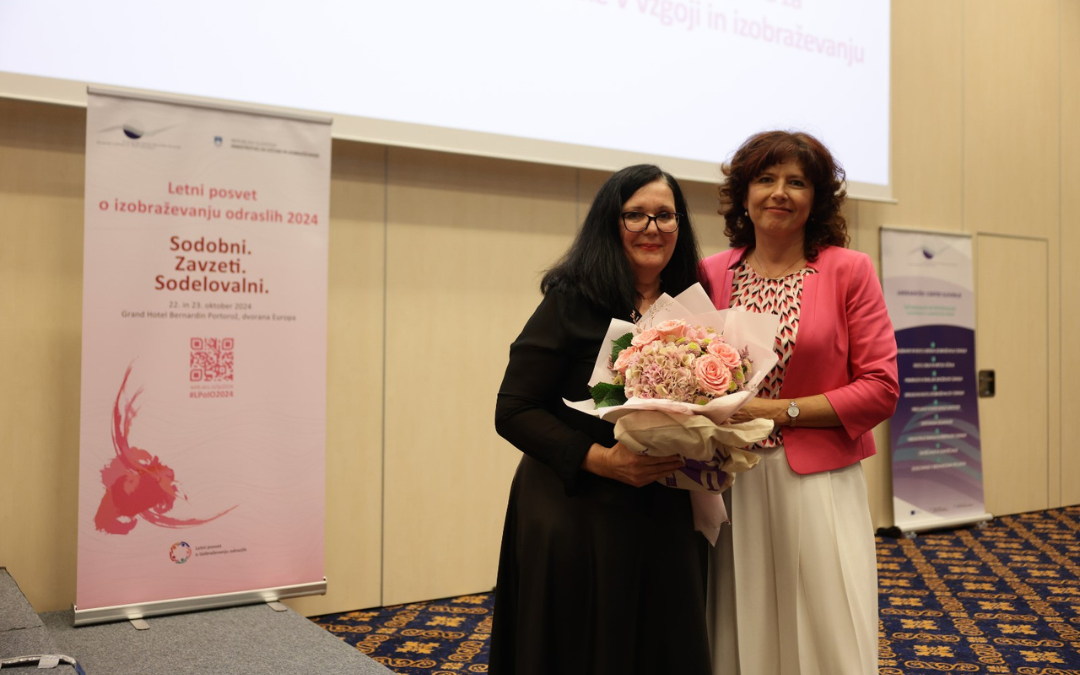
Mentors in PLYA inspire motivation for learning and education in disheartened young individuals. Therefore, this award celebrates all of us who believe that the world can be saved.
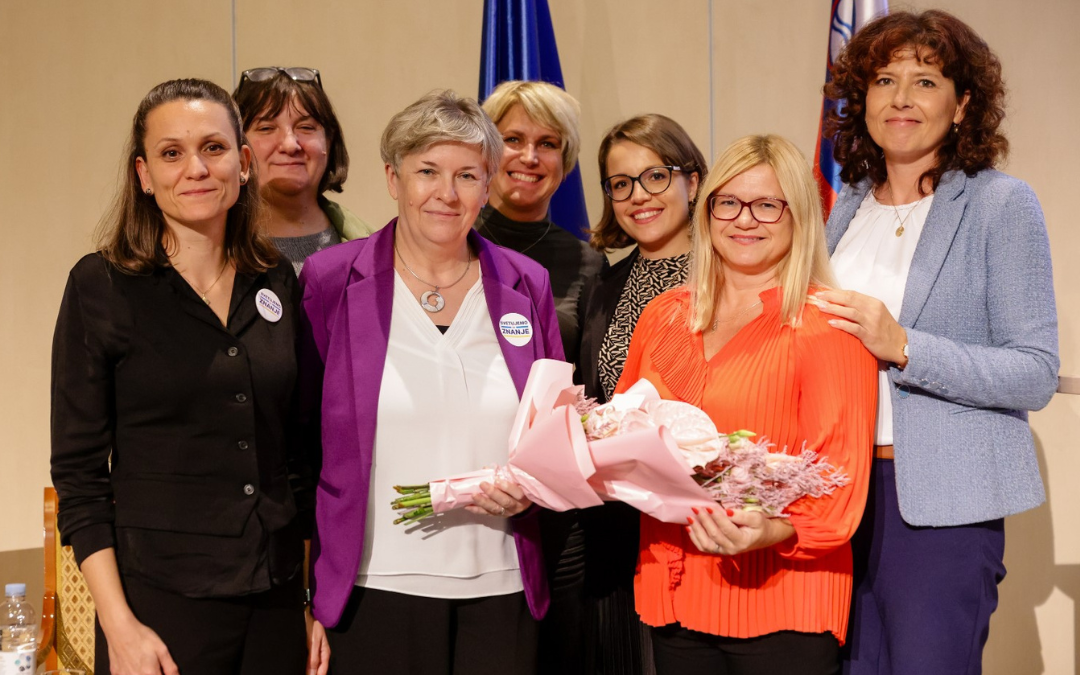
The guidance process builds on the strengths, interests and talents of the individual.
9. Creativity
Lujz Sraka, a long-time collaborator at the ISIO Centre Murska Sobota, is also a poet, with his works compiled in a book aptly titled Drugačni konji (Different Horses). He shared three of his songs, which were set to music, and read a few more pieces. Accompanied by the vocal-instrumental group Markovski dečki, he joined them in singing during the choruses and in between, creating a truly moving experience.
10. Directedness
Dr Alenka Braček Lalič passionately guided us along the path to achieving authenticity, starting with the essential prerequisite of psychological safety. She addressed our fears, encouraged the courage needed for genuine relationships and reminded us: “The strength of your community lies in each participant. The strength of each participant is your community.”
At the conference, we empowered ourselves both mentally and emotionally. We also took moments to relax and dance.
By the end, we were singing, clapping enthusiastically, and even shedding a tear or two. It was truly beautiful, warm and different!
Zvonka Pangerc Pahernik (zvonka.pangerc@acs.si), MSc, edited by Ana Peklenik (ana.peklenik@acs.si), both SIAE
Photos by: Črt Piksi

